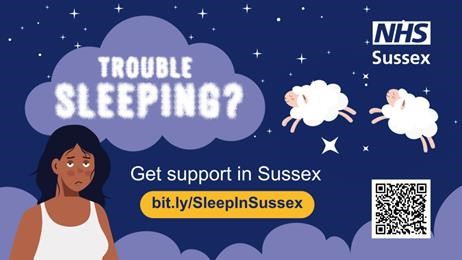Looking After Your General Health
At Moatfield Surgery, we not only want to help you to manage your current health needs but also to prevent further health problems from developing.
Taking more exercise, having a healthier diet, achieving a healthy weight, stopping smoking and drinking less alcohol can improve your health and help prevent many long-term conditions, and will help you to feel better in the long run!
This page contains resources to help you feel your best, and stay on top of your general health.
On This Page...
Monitoring your own Blood Pressure
High blood pressure is a very common condition, it puts extra strain on your blood vessels and heart, and increases the risk of Heart Disease, Heart Attacks and Strokes, among other conditions. Keeping your blood pressure well controlled helps to reduce these risks. Monitoring your blood pressure at home means that it can be treated promptly if needed.
How do I check my Blood Pressure?
You can have your blood pressure checked at some local pharmacies, at the Surgery using our Blood Pressure POD machine, or from the comfort of your own home using your own machine.
BHIS has created a list of approved Home BP Machines.
Make sure when taking your blood pressure at home, that it is not measured first thing in the morning. Please wait at least 20 minutes after rising before taking your blood pressure.
Relax for a few minutes before taking your blood pressure and ensure your feet are flat on the floor.
You should repeat the check 3 times in a row and record the lowest of the three readings.
This video, made by our NAHPs team, shows you how to take your own blood pressure at home.
For further information about High Blood Pressure and how to control it, visit our Hypertension Page.
Self-Treating and your Community Pharmacy
Your Pharmacist can offer clinical advice for a wide range of minor health concerns, including sore throats, coughs, colds, upset stomach, aches and pains and teething.
Pharmacy teams offer fast and convenient clinical support with no appointment needed. If symptoms suggest it is something more serious, they have the right clinical training to ensure you get the help you need.
Community pharmacists are qualified healthcare professionals and experts in medicines, who can offer clinical assessment, advice, reassurance, and over-the-counter medication; whilst also providing use of a confidential consultation room should it be required.
FIND YOUR NEAREST PHARMACY
Becoming More Active
Exercise is Medically proven to lower your risk of Type 2 Diabetes, Stroke, Bowel Cancer and Early Death, among other conditions and greatly benefits your mental well-being.
It is recommended adults aim to do at least 150 Minutes of physical activity over the course of a week, this adds up to around 20 minutes a day!
There is a Physical Activity for everyone, even those of us who aren't naturally sporty! Start small and build your routine from there. You could try:
- Walking to Work, or taking a walk in the park.
- Cycling instead of driving.
- Taking the stairs instead of the lift or escalator.
- Guided workout videos at home.
- Taking up a new sport.
- Joining a Gym.
- Dance Workout at home.
Every extra activity you do counts, just make sure you find something you enjoy!
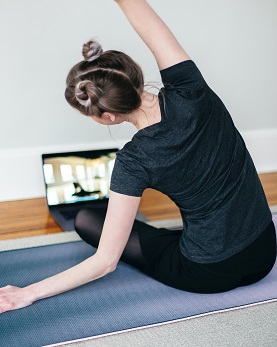
Physical Activity Posters
Resources for increasing your Physical Activity
Healthy Eating
Having a balanced diet is an important part of maintaining overall good health, and keeping you feeling your best.
To have a balanced diet, you should try to:
- Eat at least 5 portions of fruit and vegetables every day.
- Incorporate higher-fibre starchy foods like bread, rice, potatoes or pasta.
- Have some dairy or dairy alternatives.
- Eat beans, fish, eggs, meat and other proteins.
- Opt for unsaturated oils and spreads.
- Drink plenty of fluids.
If you are looking to make swaps to make your diet healthier, the NHS has created a Food Scanner App.
By scanning the barcode on the packaging, it will show you:
- If it's a "Good Choice"
- Traffic Light Ratings show you whether the product is high, medium, or low in sugar, salt and fat.
- Living Labels, a feature that can bring the sugar, fat, and salt in a product to life.
- All your previous scans!
Find out more about the Food Scanner app on the Better Health website
For more Healthy Eating resources and inspiration, take a look at our Healthy Eating and Weight Loss Page.
Help to Stop Smoking
.png)
Stopping smoking remains one of the best things you can do for your health, and quitting for good is much easier when you have the right support in place.
When you quit smoking, you will notice better overall physical health as your body stops being filled with harmful chemicals.
Starting from the day your quit, your body starts clearing the toxins and healing itself. You will soon notice an improvement in your sense of taste and smell, more energy, and easier breathing.
Other benefits of quitting include reduced risks of smoking-related diseases such as lung cancer, heart disease and stroke, and better mental health.
You will also be helping to protect those around you from the harm of secondhand smoke, which is especially dangerous for children.
Resources to help you Quit
Alcohol Advice
It is recommended men and women should not exceed 14 units per week, to keep alcohol-related health risks at a low level. Ideally, you should spread your drinking over three days or more, rather than having 14 units in one go.
So... What do 14 Units look like?
14 Units is equal to:
- 14 Single Measures (25ml) of Spirit.
- 6 (175ml) Glasses of Wine.
- 6 Pints (568ml) Ordinary Strength Beer / Lager.
Remember, you may pour yourself larger quantities than you would get at a bar.
If you are curious about how much you drink, Alcohol Change has created a Unit Calculator to help you determine how many units are in your favourite drinks.
You can also submit your units to the surgery, via our ALCOHOL CONSUMPTION SELF ASSESSMENT FORM
Want to Change the Way You Drink?
The DrinkAware App is free and helps you track your alcohol consumption, calculate units and calories, and set goals to help you to moderate your drinking.
- Find out how your drinking compares week to week.
- Take the test to find out your risk level.
- Find out the units and calories in each drink.
- Set yourself goals to moderate your drinking over time.
- Celebrate your Drink-Free days!
Sleeping Well
Sleep is essential to give your mind and body time to recharge and help you feel alert and refreshed when you wake up. Most Adults should aim for 7-9 hours of sleep a night, while children and teenagers require much more sleep, particularly children aged 5 years old and below.
The Sleep Cycle is broken down into 4 Stages:
Stage 1: Your brain starts to slow down along with your breathing and heartbeat. Your body relaxes and your muscles might twitch a little. This stage doesn't last long, only around 5-10 minutes.
Stage 2: Your body temperature starts to drop, your eye movements stop and you become less aware of your surroundings. Your heart rate and breathing will also become more regular. This stage can last anywhere from 10 minutes to an hour long.
Stage 3: Your blood pressure will drop and your breathing will slow, your muscles are completely relaxed. Stage 3 is the most critical part of sleep, where you begin your deepest sleep, helping to restore your body by releasing growth hormones to regrow muscle tissue, regrow bone cells and strengthen the immune system. This is also when you process the events and experiences of the day.
Stage 4: The final stage of sleep is Rapid Eye Movement (REM). This is when your brain's activity is most similar to when you are awake. Your brain is full of activity, your body is relaxed and your breathing is faster and more irregular. Your eyes will be moving rapidly during this stage, and this is when you will experience your most vivid dreams.
The sleep cycle lasts around 90-110 minutes and is repeated several times throughout the night.

Getting a Good Night's Sleep
- Prepare your room for sleep - A drop in temperature tells our body it is time to sleep, which means it is difficult to sleep in a hot room! Try turning the heating down before going to sleep to help your body relax better.
- Put your phone away - scrolling on your phone before bed keeps your brain awake and distracted, while the blue light delays the production of sleep chemicals. Consider stopping using electronic devices at least 30 minutes before bed.
- Avoid Clock-Watching - when you're trying to fall asleep, thinking about the time will only make it worse! Try to avoid looking at the time, or remove clocks from your sleep environment if you can.
- Consider ways to quieten your mind - If your brain is very active at night when you are trying to sleep, consider ways that you can get your mind to switch off. Perhaps word or counting games in your mind are a good distraction, journaling before bed, white noise apps or even yoga for sleep.
Trouble Sleeping? Get Support in Sussex
It's common to experience sleep problems, and there could be many reasons why you are struggling to sleep. For example:
- Illness
- Work
- Family (eg. a new baby)
- Stress
A few sleepless nights aren't usually anything to worry about, but if it starts affecting your daily life, there are lots of services in Sussex that could support you.
Apps
There's an app for everything these days... including helping you to manage your healthcare! We have listed a few apps, aligned with NHS Standards, that we think could benefit your health and well-being.
You can now use Online Services to manage appointments, request repeat prescriptions for any medications you take regularly and look at your medical record online.
We recommend the NHS App due to the features available, and ease of set up.
Being able to see your record online will help you to manage your medical conditions better, and take control of your health. It also means that you can access it from anywhere in the world, 24/7!
For more information on using the NHS App or Patient Access, visit our Online Services Page.

Other Recommended Apps
Mid-Sussex Wellbeing
Mid-Sussex Wellbeing is a service that can help you to find local well-being information and services. You can also get support for things like getting fitter, doing some regular exercise, dealing with stress, kicking a habit, or simply improving your general well-being.
Additional Resources
Moatfield Website Pages
Other Helpful Resources
NHS advice about healthy living, including eating a balanced diet, healthy weight, exercise, quitting smoking and drinking less alcohol. Live Well
National Diabetes Prevention Programme
Recent statistics from NHS England show that a third of those that have sadly died from Coronavirus, also had diabetes. It is important that those at risk of diabetes are staying well and healthy. People who are risk of developing Type 2 diabetes are now able to sign themselves up online to join their free local Healthier You NHS Diabetes Prevention Programme. The first thing they need to do is find out if they are at high risk of developing the disease by using the Diabetes UK risk tool. Finding out your risk of Type 2 diabetes only takes a few minutes.
The programme is open to those with a risk score of 16+, are aged between 18-79, are not pregnant, and don't currently have diabetes.
Last Updated 12/03/2025



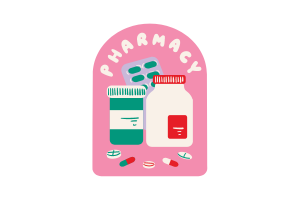
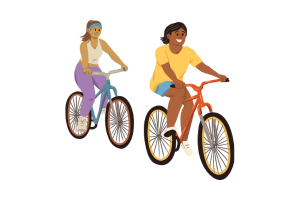

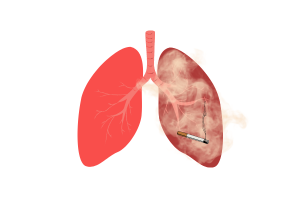


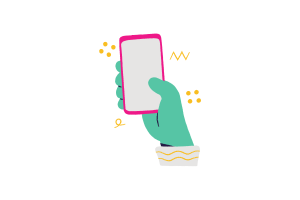

.png)

